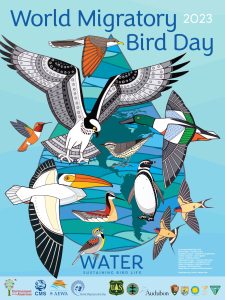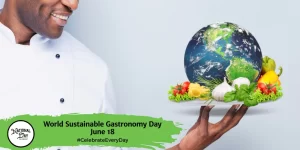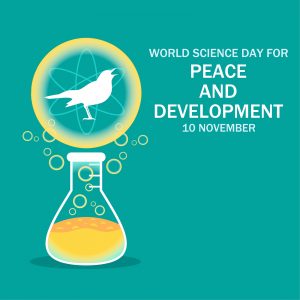 Every year, the Earth yields billions of tons of
Every year, the Earth yields billions of tons of  natural resources and at some point, in the not too distant future, it will run out.
natural resources and at some point, in the not too distant future, it will run out.
That’s why we must think again about what we throw away – seeing not waste, but opportunity.
The last decade has been the hottest on record, and we are now facing a climate emergency of unparalleled proportions. If we don’t make significant and rapid changes, we will see continued rising global temperatures, the melting of icecaps, continents on fire and rapid deforestation.
This directly affects humanity with increased poverty, immigration from displaced communities, job losses, waste mountains and natural habitats disappearing. We have the power to make lasting changes to combat this, and with recycling being recognized in the UN’s Sustainable Development Goals 2030, we are already seeing many individuals, governments and organisations taking direct action to support the global green agenda.
Recycling is a key part of the circular economy, helping to protect our natural resources. Each year the ‘Seventh Resource’ (recyclables) saves over 700 million tonnes in CO2 emissions and this is projected to increase to 1 billion tons by 2030. There is no doubt recycling is on the front line in the war to save the future of our planet and humanity.
The Global Recycling Foundation is pleased to announce the theme of Global Recycling Day 2024 as #RecyclingHeroes. This will recognise the people, places and activities that showcase what an important role recycling plays in contributing to an environmentally stable planet and a greener future which will benefit all.
Global Recycling Day was created in 2018 to help recognise, and celebrate, the importance recycling plays in preserving our precious primary resources and securing the future of our planet. It is a day for the world to come together and put the planet first.
The mission of Global Recycling Day, as set out by the Global Recycling Foundation, is twofold:
1. To tell world leaders that recycling is simply too important not to be a global issue, and that a common, joined up approach to recycling is urgently needed.
2. To ask people across the planet to think resource, not waste, when it comes to the goods around us – until this happens, we simply won’t award recycled goods the true value and repurpose they deserve.
Source: text & Images: https://www.globalrecyclingday.com/
 Water is fundamental to sustaining life on our planet. Virtually all migratory birds rely on water and its associated habitats at some point during their life cycles. Lakes, rivers, streams, ponds, wetlands, and coastal waters are all vital for feeding, drinking, or nesting, and as places to rest and refuel during long seasonal migrations.
Water is fundamental to sustaining life on our planet. Virtually all migratory birds rely on water and its associated habitats at some point during their life cycles. Lakes, rivers, streams, ponds, wetlands, and coastal waters are all vital for feeding, drinking, or nesting, and as places to rest and refuel during long seasonal migrations. Investing in People, Planet, and Prosperity
Investing in People, Planet, and Prosperity Turns Out Elephants May Play a Crucial Role in Saving The Planet
Turns Out Elephants May Play a Crucial Role in Saving The Planet Why Asteroid Day?
Why Asteroid Day? Each year on June 29th, the International Day of the Tropics raises awareness about various challenges that tropical nations face. It’s also a day to celebrate the extraordinary diversity of the Tropics.
Each year on June 29th, the International Day of the Tropics raises awareness about various challenges that tropical nations face. It’s also a day to celebrate the extraordinary diversity of the Tropics. Word Sustainable Gastronomy Day on June 18 recognizes the practices and principals associated with sustainable food consumption combined with the art of collecting, preparing, and consuming the food we eat. As part of the observance, the day acknowledges the social, cultural, and artistic expression related to gastronomy and defines three dimensions of sustainable development – people, planet, and profit.
Word Sustainable Gastronomy Day on June 18 recognizes the practices and principals associated with sustainable food consumption combined with the art of collecting, preparing, and consuming the food we eat. As part of the observance, the day acknowledges the social, cultural, and artistic expression related to gastronomy and defines three dimensions of sustainable development – people, planet, and profit. For the past 50 years, Earth Day has been celebrated by billions of people around the globe, annually every April 22, to join together in promoting awareness for the health of our environment. Why should we continue to celebrate this holiday? Some people may view it as just another holiday, or an excuse to wear green and a flower crown, similar to St. Patrick’s Day, but with serious concerns about our changing environment being studied and addressed today by prominent scientists, politicians, and young climate change activists alike, some people are adapting to more environmentally friendly ways of living — every day, not just on April 22 every year. Cue the composting, recycling, repurposing, carpooling, thrifting, and metal straws to save the turtles.
For the past 50 years, Earth Day has been celebrated by billions of people around the globe, annually every April 22, to join together in promoting awareness for the health of our environment. Why should we continue to celebrate this holiday? Some people may view it as just another holiday, or an excuse to wear green and a flower crown, similar to St. Patrick’s Day, but with serious concerns about our changing environment being studied and addressed today by prominent scientists, politicians, and young climate change activists alike, some people are adapting to more environmentally friendly ways of living — every day, not just on April 22 every year. Cue the composting, recycling, repurposing, carpooling, thrifting, and metal straws to save the turtles. Celebrated every 10 November, World Science Day for Peace and Development highlights the significant role of science in society and the need to engage the wider public in debates on emerging scientific issues. It also underlines the importance and relevance of science in our daily lives.
Celebrated every 10 November, World Science Day for Peace and Development highlights the significant role of science in society and the need to engage the wider public in debates on emerging scientific issues. It also underlines the importance and relevance of science in our daily lives.
